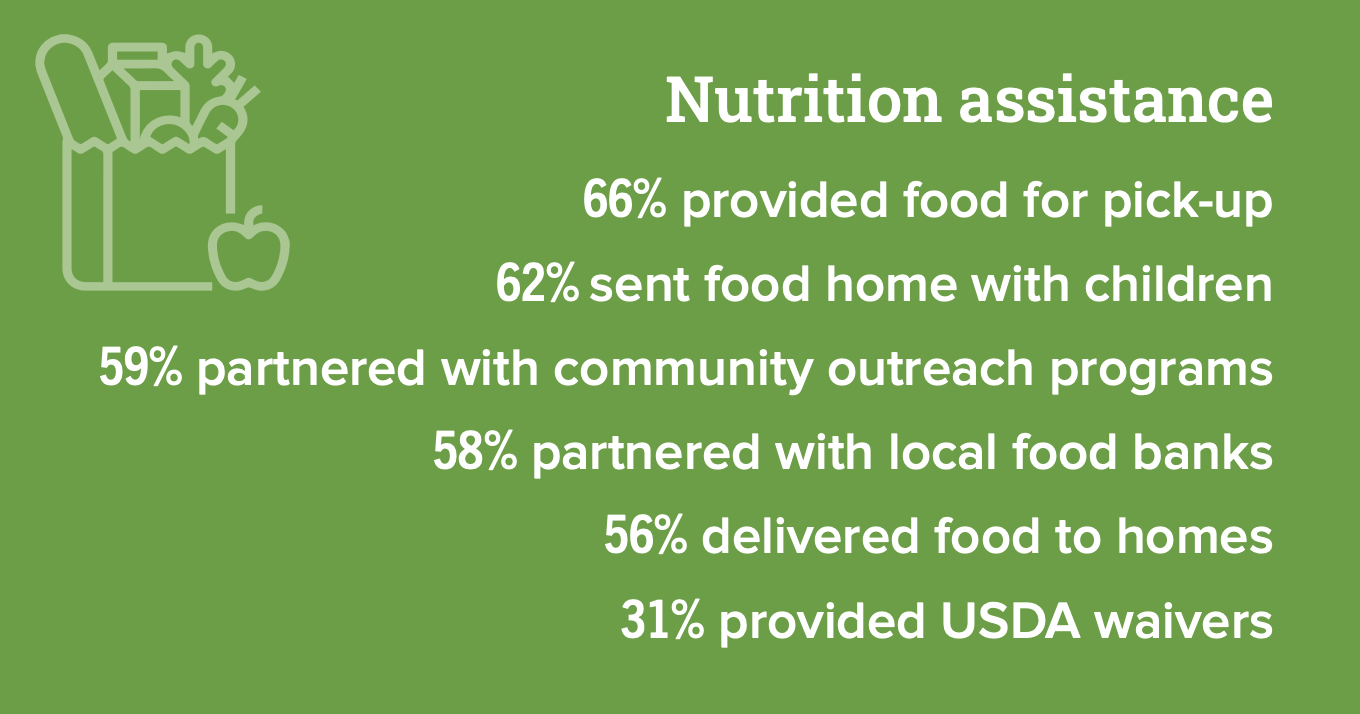In April, thanks to years of education and advocacy efforts by the Head Start community, the Office of Head Start (OHS) took a significant step to better support young children and their families who experience food insecurity. Leveraging the president’s executive order, OHS announced a rule change that allows families enrolled in the Supplemental Nutrition Assistance Program (SNAP) to automatically qualify for Head Start and Early Head Start.
This one, simple change to verifying Head Start eligibility is already making it easier for families to access Head Start. In just a few short weeks since the announcement, the rule change is strengthening Head Start’s outreach to children and families facing food insecurity and is galvanizing new state and local partnerships.
Reducing Stress for Families
Proving eligibility for Head Start is a necessary, but overly-complex process. For families experiencing housing instability, disability, or other challenges to social and economic inclusion, complex paperwork can be an insurmountable barrier to access. This is why Congress acted in 2007 to ensure children and families experiencing homelessness could be deemed categorically eligible for Head Start and Early Head Start.
This pandemic has buffeted families with young children, from unprecedented stress from care disruptions and job loss, to fear of exposing their unvaccinated children to COVID. Families need relief and better, more seamless support.
The change will allow families who are already enrolled in SNAP to qualify through a simple process. Instead of completing another round of paperwork, they can provide a “notice of approval, other documentation of eligibility or benefits from the SNAP agency, or an Electronic Benefit Transfer card with SNAP ID number.”
While this change to the paperwork process may appear small, it will relieve a significant administrative burden that keeps children and families from enrolling. Anything we can do in these times to ease a burden on families recovering from this pandemic is good policy.
Strengthening Outreach to Food Insecure Children
 Poverty and food insecurity-especially child poverty and child food insecurity-are inextricably linked. An estimated 3.6 million children under age six are living in poverty. The rate of child food insecurity nearly doubles for children living below 180% of the federal poverty level.
Poverty and food insecurity-especially child poverty and child food insecurity-are inextricably linked. An estimated 3.6 million children under age six are living in poverty. The rate of child food insecurity nearly doubles for children living below 180% of the federal poverty level.
According to a recent health services report from NHSA, 62% of Head Start staff said many families they serve are food insecure.
Head Start and Early Head Start have long been structured to address food insecurity. Programs support breastfeeding, offer free formula to families, provide healthy meals, and deliver critical nutrition support to families. These activities were strengthened during the pandemic.
During the pandemic, Head Start programs stepped up to address food insecurity.
The new rule change is the first official recognition of the need to coordinate services to families enrolled in Head Start, Early Head Start, and SNAP. It is especially significant because of the large numbers of children already enrolled in SNAP.
Enabling new state and local partnerships
Head Start and Early Head Start have many active local partnerships around nutrition. Many of these collaborations expanded during the pandemic. Head Start has much to offer in these partnerships. For example, programs have established connections in low-income communities of color, including the Hispanic community, who represent a large share of enrollment in both Head Start and SNAP.
At the local level, the SNAP rule change will build on this solid foundation. For example, the change enables more effective outreach and enrollment in both programs. In addition, Head Start and SNAP can leverage the change to host joint training opportunities and share food insecurity data.
At the state level, this change brings new and bold collaboration possibilities. State Head Start Associations and Collaboration Offices are already active in developing agreements with the state agencies that administer SNAP to maximize cooperation and impact in Arizona, Delaware, Indiana, New Jersey, and other states.
Get Involved
Here are three ways to support the implementation of the SNAP rule change:
- Connecting with a local Head Start or Early Head Start program to hear from and partner with those on the ground implementing this change
- Engaging your state’s State Head Start Association for actions you can take with them and their members
- Donating to NHSA’s Dollar Per Child campaign to support the bold and sustained education and advocacy that made this rule change possible
Related Content
